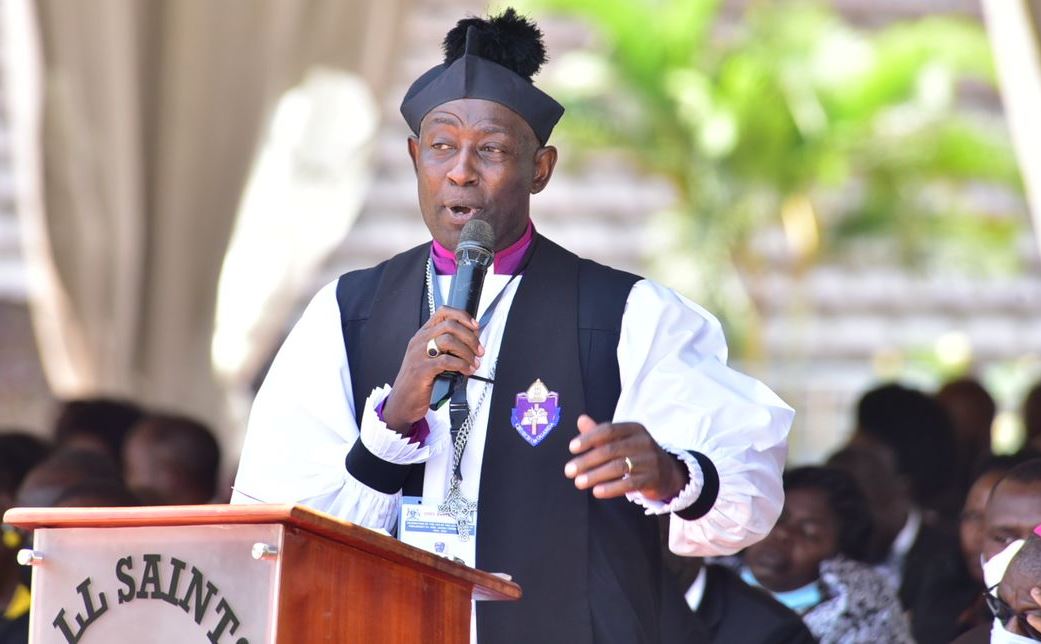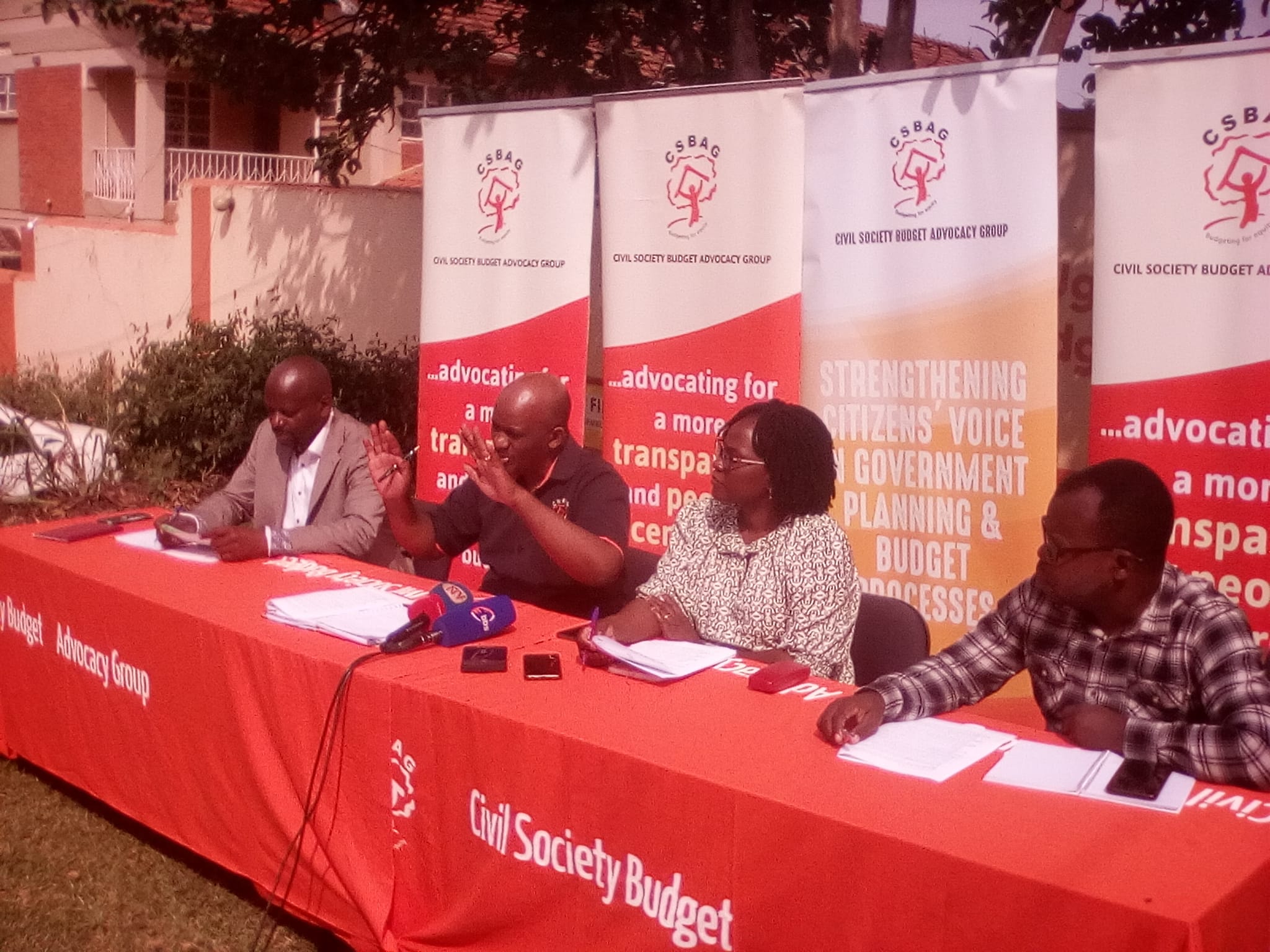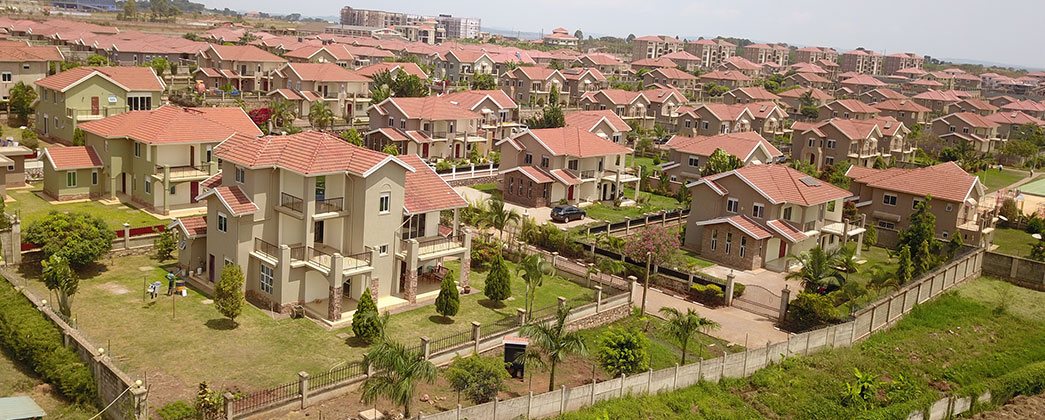Archbishop of Church of Uganda,Dr. Steven Kaziimba Mugalu has delivered a stern warning about the adverse effects of World Bank loans halt on the country’s economy.
The esteemed religious leader, known for his insightful perspectives, has drawn attention to the long-standing issue of lackluster economic growth that has plagued Uganda for years, linking it to the loans obtained from the World Bank.
This poignant assertion comes on the heels of a significant development — the World Bank’s announcement of its decision to halt new loans to Uganda on August 8th, in response to the country’s recently passed anti-homosexuality law.
In a moment that underscored the intersection of economics and social policy, Archbishop Kaziimba Mugalu delivered his compelling message while leading the Sunday service today at the iconic Namirembe Cathedral.
With the eyes of his congregation fixed upon him, the Archbishop articulated a thought-provoking perspective, connecting the dots between Uganda’s reliance on external loans and the potential consequences of its recent legislative decisions.
Instead, Kaziimba urged the government to optimize revenue sources such as agriculture, tourism, minerals, trade, and taxes collected by the Uganda Revenue Authority (URA).
“According to the natural law, God created a man and a woman. Therefore if somebody says that you are on your own and they will not give you assistance if you don’t allow same sex marriages, just understand that such a party does not wish well, and has never wished anything good for you,” Kaziimba wondered.
Archbishop Kaziimba added that according to his research, these loans majorly benefit foreign expatriates, and a significant portion of them is misappropriated by corrupt government officials, leaving ordinary Ugandans burdened with repaying the high interest rates associated with the loans.
“When someone has helped you for more than sixty years, but there is no significant economic growth to showcase, it means that their aid is useless and exploitative,” he charged.
The outspoken cleric believes that if these sectors are properly utilized, they can cover the nation’s expenses, eliminating the need for loans from the World Bank. He highlighted that such loans often come with undesirable conditions, like supporting same-sex marriages and high interest rates, which make repayment difficult and hinder economic growth.
The World Bank’s decision to suspend funding for Uganda’s development projects, including infrastructure was in response to the country’s new Anti-LGBTQ law, which has faced global criticism for its stringent measures against the LGBTQ community.
Kazimba noted that this move by the World Bank serves as a wake-up call for Ugandan patriots, suggesting that Western powers do not have the best interests of Africa’s economic development at heart. He argued that their long-term goal has been to exploit Africa for their own economic gains.
The Archbishop’s sentiments align with concerns voiced by African political analysts and commentators regarding the viability of Western financial institutions like the World Bank and the International Monetary Fund (IMF).
These experts have argued that foreign aid from the West has often left African countries worse off due to the exploitative conditions attached, including high interest rates and restrictions on project selection and investment.
Uganda’s opposition Members of Parliament (MPs) also weighed in on the matter, advising the government to exercise prudent spending in order to counter the World Bank’s directive.
Shadow Minister for Finance, Planning, and Economic Development, as well as Butambala MP Hon. Muwanga Kivumbi suggested that government should avoid unnecessary expenditures such as purchasing expensive vehicles for officials using taxpayer funds.
He recommended selling state luxurious items like the President’s helicopter, and Speaker Hon. Anita Among’s expensive duty vehicle to generate funds for essential government expenses that might be affected by the World Bank’s decision.
The Archbishop’s statements echo concerns raised by various experts and leaders about the implications of foreign aid and the importance of responsible financial management for the nation’s growth.
As Archbishop Kaziimba Mugalu’s message reverberates beyond the walls of Namirembe Cathedral, it resonates as a call to action — a plea for a more holistic and balanced approach to governance, one that takes into account both economic stability and social inclusivity.
The convergence of economic discourse and matters of social justice underscores the archbishop’s unique position as a unifying figure, urging his congregation and the nation at large to reflect on the multifaceted challenges that lie ahead.
Do you have a story in your community or an opinion to share with us: Email us at Submit an Article







